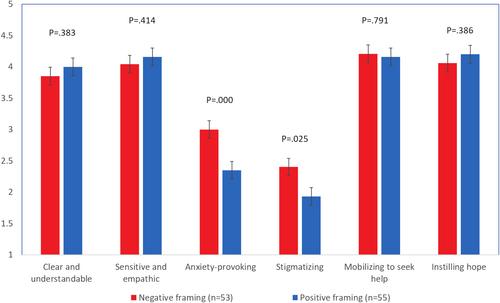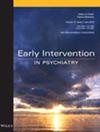Positive Reframing of Psychosis Risk is Perceived as Less Frightening and Stigmatising Than Negative Framing by Adolescents With and Without Prodromal Symptoms: An Experimental Simulated Feedback Study
Abstract
Background and Aims
Recent studies have shown that communicating and psycho-educating young individuals and their families about high-risk psychosis can offer benefits, like validation and access to specialised care. However, it can also negatively impact self-perception, distress and help-seeking behaviour. In a recent study (Sol-Nottes et al.), we demonstrated that clinicians view positive reframing as a way to mitigate these concerns. This study aimed to extend those findings to community-dwelling adolescents with high versus low levels of distressing ‘prodromal’ experiences. An additional goal was to explore the moderating role of sex and culture.
Methods
The study replicated the design from Sol-Nottes et al. Exactly 108 adolescents were randomly assigned to view either negatively or positively framed simulated feedback sessions, followed by questions about the session's impact. Prior to viewing the simulated session, all participants completed the brief version of the Prodromal Questionnaire (PQ-B).
Results
As hypothesised, positive framing significantly reduced fear and stigma. However, contrary to our secondary hypothesis, these effects were not moderated by the level of prodromal symptoms. Finally, exploratory analyses revealed a moderating effect of sex and culture, with a stronger effect of positive reframing on stigma, mobilisation to seek help and hopefulness, among male and Arab adolescents.
Conclusions
These findings provide further support for the potential beneficial effect of positive reframing in the context of at-risk mental states and highlight the importance of cultural factors. Together, these results lay the groundwork for clinical trials on positive framing in real-world settings.


 求助内容:
求助内容: 应助结果提醒方式:
应助结果提醒方式:


